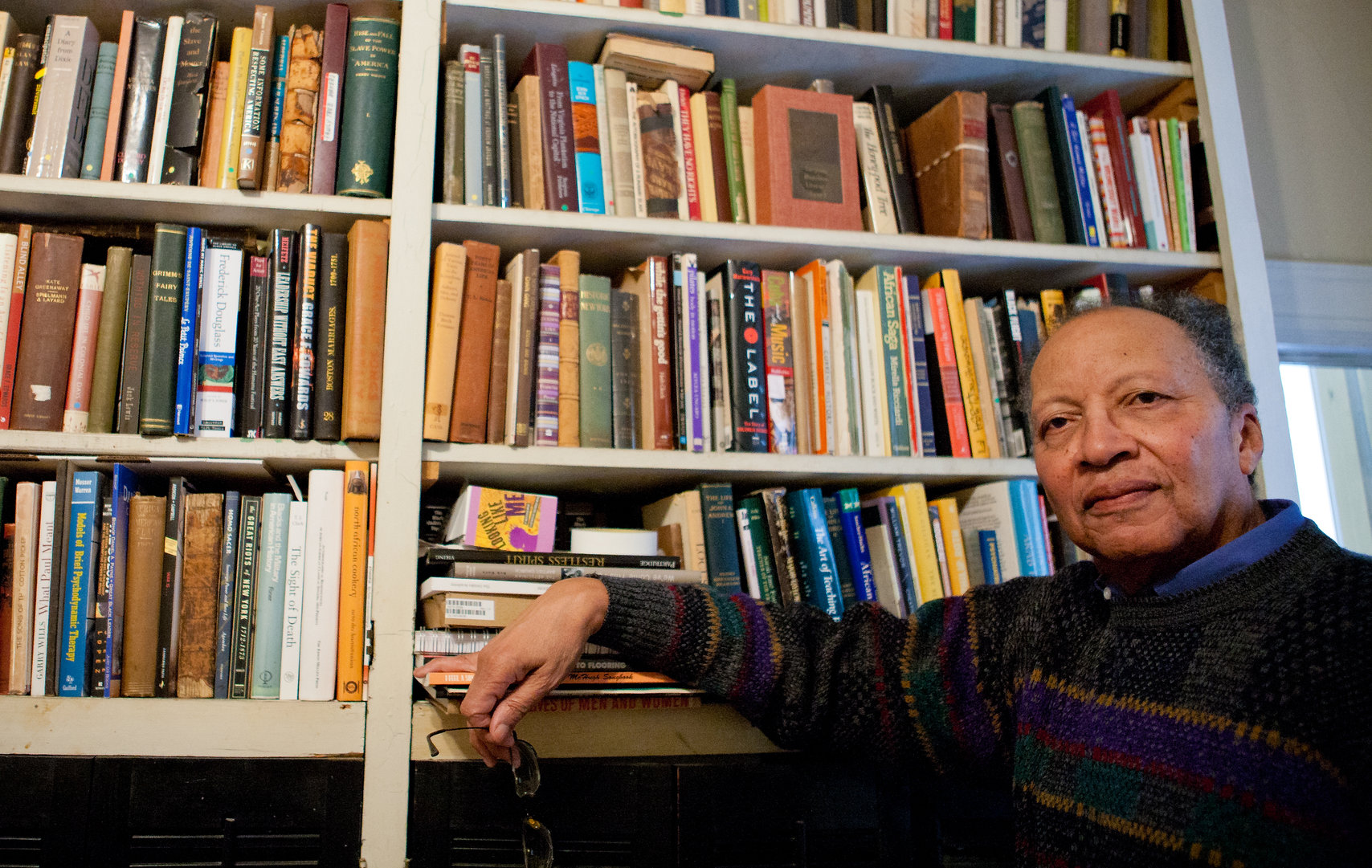
Walter Dean Myers, a renowned American author, left an indelible mark on the world of literature through his powerful and thought-provoking works. Known for his ability to capture the raw realities of life, Myers crafted stories that resonated deeply with readers of all ages. In this article, we will explore 20 fascinating facts about Walter Dean Myers, shedding light on his life, achievements, and enduring legacy.
Early Life and Background
Walter Dean Myers was born on August 12, 1937, in Martinsburg, West Virginia. He grew up in a tough neighborhood in Harlem, New York City, during a time when racial tensions were high. Myers’ difficult upbringing greatly influenced his writing and provided him with a unique perspective on the world.
Love for Reading and Writing
As a child, Walter Dean Myers discovered his passion for literature and storytelling. Despite struggling with a speech impediment, he found solace in books and began writing his own stories at a young age. Myers’ love for reading and writing served as a refuge from the challenges he faced in his everyday life.
Military Service
In his late teens, Myers enlisted in the United States Army. He served in the army for three years, from 1954 to 1957, and later wrote about his experiences in his critically acclaimed memoir, “Bad Boy: A Memoir.” His time in the military provided him with valuable insights and a deeper understanding of human nature, which he would later incorporate into his writings.
Educational Journey
After completing his military service, Myers pursued his education at various institutions. He attended Stuyvesant High School, where he excelled academically and discovered his talent for writing. Later, he studied at the City College of New York but dropped out to fully dedicate himself to his writing career.

Literary Career Kick-Off
Walter Dean Myers’ literary career began to take off in the late 1960s. He started by writing articles and short stories for magazines and eventually transitioned into writing books for young readers. His breakthrough came in 1968 with the publication of his first children’s book, “Where Does the Day Go?”
Diverse Literary Contributions
Throughout his prolific career, Myers wrote more than a hundred books for children, young adults, and adults. He explored various genres, including realistic fiction, historical fiction, biographies, and poetry. Myers’ versatility as a writer allowed him to tackle a wide range of subjects and themes, making his work relatable and impactful to readers from all walks of life.
Notable Works
Several of Walter Dean Myers’ works have garnered widespread acclaim and earned prestigious awards. One of his most celebrated novels is “Monster,” published in 1999. This gripping and haunting tale explores themes of race, identity, and justice through the eyes of a young African American boy on trial for murder. “Monster” was awarded the Michael L. Printz Award and became a staple in classrooms and libraries across the nation.
Serving as a Voice for Marginalized Communities
A recurring theme in Walter Dean Myers’ writing was the portrayal of characters from marginalized communities. He aimed to give voice to those often overlooked by society, shedding light on their struggles, hopes, and dreams. Myers’ works confronted issues such as racism, poverty, and violence, fostering empathy and understanding among readers.

Empowering Young Readers
One of Walter Dean Myers’ primary goals as an author was to empower young readers, especially those facing adversity. He believed in the transformative power of literature and strived to create characters that young people could identify with. By telling stories that reflected their own experiences, Myers aimed to inspire and uplift his readers, encouraging them to overcome obstacles and believe in their potential.
Dedicated Advocate for Literacy
Beyond his writing, Walter Dean Myers was a passionate advocate for literacy and education. He recognized the transformative impact of reading and actively worked to promote literacy initiatives. Myers served as a National Ambassador for Young People’s Literature, appointed by the Library of Congress and the Children’s Book Council, where he tirelessly championed the importance of reading and engaged with young readers across the country.
Recognition and Awards
Walter Dean Myers’ contributions to literature were widely recognized and honored. He received numerous awards throughout his career, including two Newbery Honors, five Coretta Scott King Awards, and the Margaret A. Edwards Award for his lasting contribution to young adult literature. Myers’ works continue to be celebrated for their literary merit and their impact on readers of all ages.
Literary Legacy
Walter Dean Myers’ impact on the literary world extends far beyond his lifetime. His works continue to be widely read and studied, both in educational settings and for personal enrichment. Myers’ books have become an integral part of the literary canon, resonating with readers and sparking important discussions about social justice, diversity, and the power of storytelling.
Mentorship and Support for Aspiring Writers
Throughout his career, Walter Dean Myers was committed to nurturing and supporting aspiring writers. He served as a mentor to numerous young authors, providing guidance and encouragement. Myers believed in the importance of fostering the next generation of storytellers and worked tirelessly to create opportunities for emerging voices in literature.

Reflection of Personal Experiences
Many of Walter Dean Myers’ works drew inspiration from his own life experiences and the challenges he faced growing up in Harlem. By infusing his stories with authentic and relatable characters, he brought a sense of truth and honesty to his writing. Myers’ ability to capture the essence of human struggles resonated deeply with readers and contributed to the enduring popularity of his works.
Impact on Young Readers
Walter Dean Myers’ works have had a profound impact on young readers worldwide. His books provide a window into the lives of diverse characters, fostering empathy, understanding, and cultural awareness. Through his storytelling, Myers inspired countless young people to develop a love for reading and empowered them to navigate the complexities of the world with compassion and resilience.
Literary and Cultural Influence
Walter Dean Myers’ contributions to literature extend beyond the boundaries of his own works. He paved the way for future authors to explore themes of diversity and social justice, encouraging a broader representation of voices in children’s and young adult literature. Myers’ legacy serves as a reminder of the power of storytelling to shape perspectives, challenge norms, and effect positive change.
Adaptations to Other Mediums
Walter Dean Myers’ stories have been adapted for other mediums, bringing his narratives to life in new ways. His book “Monster” was adapted into a film in 2018, directed by Anthony Mandler. This adaptation allowed the story to reach a wider audience and further amplify the themes explored in Myers’ original work.
Commitment to Honesty and Authenticity
Throughout his writing career, Walter Dean Myers remained committed to portraying the realities of life with honesty and authenticity. His works tackle difficult and sometimes uncomfortable subjects, challenging readers to confront the complexities of the world they inhabit. Myers’ dedication to truthfulness in his storytelling elevated his works and cemented his reputation as a master storyteller.
Lasting Influence on the Literary Landscape
Even after his passing in 2014, Walter Dean Myers’ impact on the literary landscape remains significant. His stories continue to inspire and resonate with readers of all ages, ensuring that his voice and perspective endure. Myers’ legacy serves as a testament to the enduring power of literature to provoke thought, evoke emotions, and ignite change.
Celebration of Diversity and Inclusion
At the core of Walter Dean Myers’ body of work is a celebration of diversity and the power of inclusivity. Through his characters and narratives, he showcased the richness of human experiences, promoting understanding and acceptance of different cultures, races, and backgrounds. Myers’ works stand as a testament to the importance of embracing diversity and fostering a more inclusive society.
Conclusion
Walter Dean Myers was a literary giant who left an indelible impact on the world of literature. Through his compelling storytelling, commitment to truthfulness, and dedication to empowering young readers, Myers crafted a legacy that continues to inspire and resonate. His ability to capture the human experience with authenticity and empathy ensures that his works will be cherished for generations to come.
Frequently Asked Questions (FAQs)
What was Walter Dean Myers’ most famous book?
Walter Dean Myers’ most famous book is “Monster,” published in 1999. It received critical acclaim, won several awards, and has become a beloved classic in young adult literature.
What inspired Walter Dean Myers to become a writer?
Walter Dean Myers was inspired to become a writer by his love for reading and his personal experiences growing up in Harlem. Despite facing challenges, he found solace in books and writing, which ultimately sparked his passion for storytelling.
How did Walter Dean Myers contribute to promoting literacy?
Walter Dean Myers was a dedicated advocate for literacy. He served as a National Ambassador for Young People’s Literature, promoting the importance of reading and engaging with young readers across the country. Myers actively supported literacy initiatives and believed in the transformative power of books.
What themes did Walter Dean Myers often explore in his writing?
Walter Dean Myers’ writing often explored themes of race, identity, social justice, and the struggles faced by marginalized communities. He aimed to give voice to those who were often overlooked and shed light on the realities of their lives.
How has Walter Dean Myers’ work influenced the literary landscape?
Walter Dean Myers’ work has had a significant influence on the literary landscape, particularly in children’s and young adult literature. He paved the way for more diverse voices to be represented in literature and inspired a generation of authors to tackle important social issues in their work. Myers’ legacy continues to shape and inspire future generations of storytellers.
Was this page helpful?
Our commitment to delivering trustworthy and engaging content is at the heart of what we do. Each fact on our site is contributed by real users like you, bringing a wealth of diverse insights and information. To ensure the highest standards of accuracy and reliability, our dedicated editors meticulously review each submission. This process guarantees that the facts we share are not only fascinating but also credible. Trust in our commitment to quality and authenticity as you explore and learn with us.
